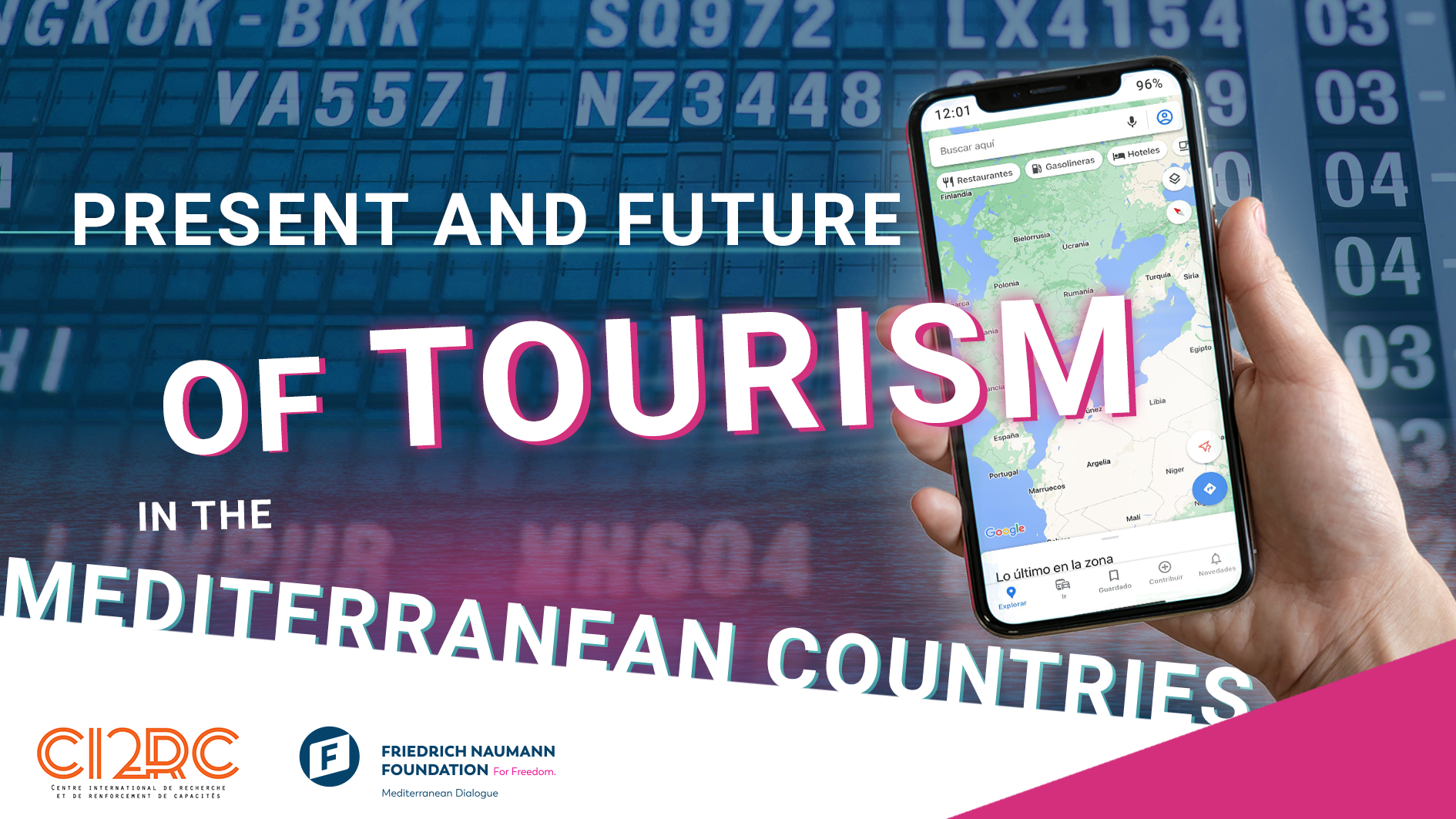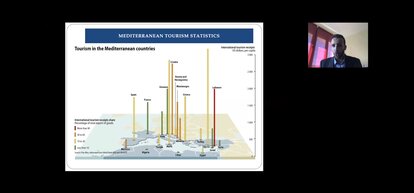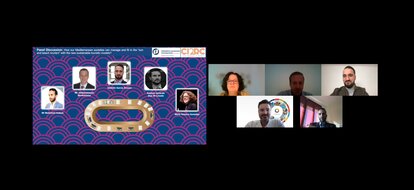Tourism
Tourism sector in the Mediterranean region: a time of challenges, opportunities and changes

On April 7, under the organization of the FNF Madrid in coordination with the Rabat office and the CI2RC (Centre International de la Recherche et de Renforcement des Capacités), a debate was held on some of the most important tourism topics in the Mediterranean region today.
It was attended by experts who approach tourism activity from different angles. It began with the participation of Sebastian Vagt (Director of the FNF office in Rabat) and Kholoud Kahime (President of CI2RC), who briefly introduced the topic by highlighting the importance of regional collaboration in this sector.
It was followed by a brief contextualization of the historical evolution and socioeconomic importance of the sector on the shores of the Mediterranean Sea, in which the Professor and Secretary General of the Higher Technological School of Essaouira, highlighted the great importance of the cultural ties that have united the entire region for centuries and that, precisely, have fostered some changes in the transformations of these civilizations. Mr. Hadach also pointed out that the Mediterranean region is, without a doubt, the main focus of tourism worldwide, but not all destinations absorb the same demand, since the countries of the North absorb the demand from Northern and Central Europe, while those of the South tend to absorb the demand from the countries of the Northern Mediterranean. Finally, he exposed some data that denote the importance of the sector economically speaking for the region: as for example that 1 of every 80 inhabitants is employed in relation to the tourist sector (yes, inhabitants, not active population).

Presentation at the online event.
© FNF MadridOnce this part was finished, the debate began, moderated by Valentín Garal, in which besides the aforementioned Mr. Hadach, participated María Velasco González, Advisor of the Spanish Secretary of State for Tourism, Patricio Azcárate Diaz de Losada, General Secretary of Biosphere, Institute of Responsible Tourism was also representing the European countries and from Morocco Abderrahmane Benmansour, Director of the prestigious Le Dawliz Hotel and Spa 5*, in Rabat. The debate was divided into three blocks with a different approach for each block.
In the first one, the changes and opportunities derived from the coronavirus pandemic, were discussed. The main idea extracted from the exchange of opinions was the great difficulty for the sector given its nature. As well defined by the WTO (World Tourism Organization), it is necessary to travel for Tourism to exist, with which the generalized restrictions of mobility put great barriers to the sector. However, these difficulties can also be seen as an opportunity to improve tourism services. Moreover, the idea that the importance of introducing sustainable models of tourism was already growing significantly before the pandemic and has not been a consequence of it was repeatedly highlighted.
Precisely in line with sustainability, the second block raised the possibilities of coexistence of sustainable models with traditional models. Many interesting ideas were shared, in addition to the need for sustainability in the models as well as the current willingness of societies to carry out this process. Some interesting ideas were, for example, that sun and beach models do not always have to be unsustainable or that all sustainable models have to be only environmentally friendly, when there are other variables of vital importance that are often forgotten, such as economic or social sustainability. Moreover, it is important to understand that any sustainable model must first be economically viable in order to exist. However, it is also worth mentioning, in terms of the transition to sustainable models, that the vast majority of tourism companies in the region and worldwide are small and medium-sized, and they need institutional support to be able to execute processes that promote sustainability.

Finally, the dimensions of competition and cooperation in the tourism sector and the precariousness of the tourism labor market were discussed. It was explained that, at the company level, economic agents must compete, but also cooperate, since, when deciding on a tourist destination, the consumer does not usually look at the company but at the destination. Local and regional authorities are responsible for this. At the regional level, agreements could be effective in alleviating the problems commonly faced by many of the region's destinations. Regarding the labor market, the most useful way, shared during the exchange of views, to alleviate the usual poor conditions would be to combat seasonality by promoting tourism less concentrated in the summer season, as this would reduce overloads during that season and favor employment stability in the sector.
